Waste Space

How do scientists predict the impact of regular space travel on the environment ?
Scientists predict the environmental impact of regular space travel by considering various factors such as greenhouse gas emissions, waste generation, and resource consumption. They use computer models, simulations, and experimental data to estimate potential effects on Earth's ecosystems. Greenhouse Gas Emissions: Launching rockets requires a significant amount of fuel, leading to high CO2 emissions. Powering spacecraft and supporting infrastructure also contributes to increased energy consumption and CO2 emissions. Waste Generation: Astronauts generate solid waste during their missions, which needs proper disposal to avoid pollution. Spent rocket stages can cause debris in orbit or harm wildlife if they fall back to Earth uncontrolled. Resource Consumption: Regular space travel requires a substantial amount of resources, including water, food, and materials for building spacecraft and infrastructure. This leads to increased demand and potential stress on freshwater sources, soil degradation, loss of biodiversity, and environmental damage due to material extraction. Mitigating Strategies: To address the environmental concerns associated with regular space travel, scientists propose strategies like developing efficient propulsion systems, using renewable energy sources, implementing waste reduction techniques, and promoting sustainable resource management practices.

What are the benefits of waste reduction for the environment ?
Reducing waste is crucial for preserving our planet's health and ensuring a sustainable future. Here are some key benefits of waste reduction for the environment: * Reduced Landfill Space * Conservation of Natural Resources * Decreased Pollution * Climate Change Mitigation * Preservation of Wildlife Habitats * Economic Benefits

Why is it important to recycle electronic waste ?
Recycling electronic waste is crucial for environmental sustainability, public health, and economic benefits. It conserves natural resources, reduces landfill space, prevents toxicity, creates jobs, saves costs, promotes green technology, reduces exposure to toxic substances, protects biodiversity, extends product lifespan, and raises awareness. Understanding the importance of e-waste recycling can lead to informed decisions that contribute to a circular economy and a healthier planet.
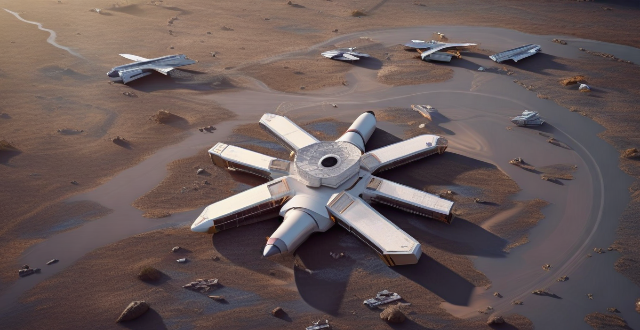
How sustainable is the commercial space industry, and what environmental concerns should be addressed ?
The commercial space industry is facing environmental concerns such as carbon emissions, space debris, natural resource depletion, and radioactive waste disposal. To address these issues, companies can adopt sustainable practices, invest in new technologies, and explore alternative materials and energy sources. By doing so, they can reduce their impact on the environment and contribute to a more sustainable future.
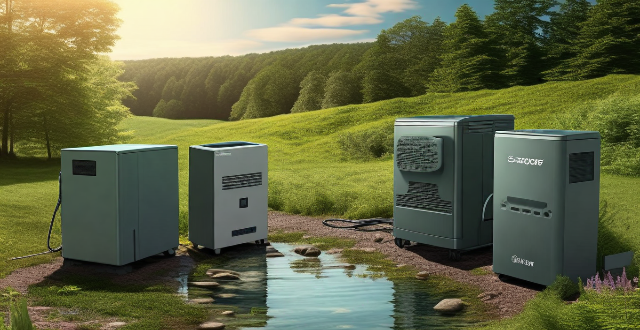
How does electronic waste affect the environment if not recycled ?
Electronic waste, or e-waste, refers to discarded electronic devices such as computers, smartphones, and televisions. Improper disposal of these items can have severe consequences for the environment, including the release of toxic chemicals into soil, water, and air. These chemicals can cause health problems for both humans and wildlife. Non-recycled e-waste also occupies valuable landfill space and contributes to soil contamination, water pollution, and air pollution. Proper recycling of electronic waste is essential to protect the environment and human health, conserve natural resources, and minimize the impact on landfills.
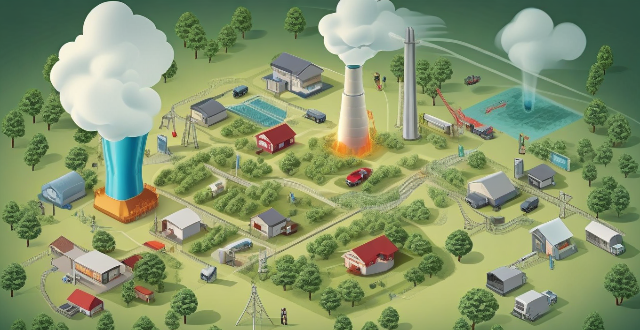
What is the relationship between waste reduction and energy conservation ?
The article discusses the relationship between waste reduction and energy conservation, highlighting their importance in promoting sustainable development. Waste reduction strategies such as recycling, composting, reusing materials, and reducing packaging conserve natural resources, reduce landfill space, and lower greenhouse gas emissions. Energy conservation measures like using energy-efficient appliances, improving insulation, and promoting renewable energy sources lead to lower energy costs, reduced greenhouse gas emissions, and promote sustainable development. The practices are interconnected, with recycling saving energy, composting reducing energy use, reducing packaging saving energy, energy-efficient appliances reducing waste, and promotion of renewable energy sources conserving energy and reducing waste.

How can governments promote waste reduction initiatives among citizens ?
Governments can promote waste reduction initiatives among citizens through education campaigns, incentives, regulations, community involvement, research and development, and public infrastructure investments. These strategies aim to raise awareness, encourage sustainable practices, enforce compliance, engage communities, fund innovative solutions, and establish efficient waste management systems.
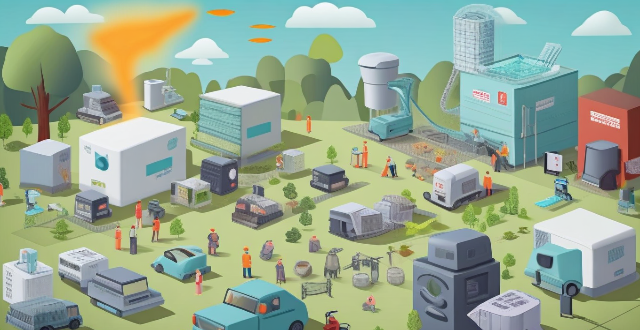
How does proper waste management aid in saving energy and reducing pollution ?
Proper waste management is crucial for conserving energy and reducing pollution. It involves strategies like composting organic waste to reduce methane emissions, enhancing recycling to save energy in manufacturing new products, preventing environmental pollution through proper disposal, promoting sustainable practices like reduce, reuse, and recycle, and supporting the circular economy model. By adopting these measures, we can move towards a more sustainable future that conserves resources and protects our planet.
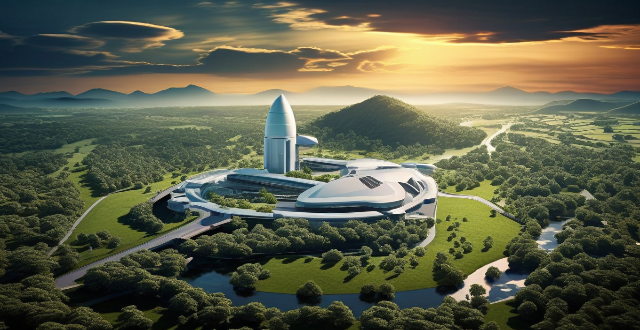
What is the future of space tourism and its implications on Earth's resources ?
The development of space tourism by private companies like SpaceX, Blue Origin, and Virgin Galactic may make it more accessible to the public in the future. However, it raises concerns about its environmental impact, economic considerations, ethical concerns, and long-term sustainability. It is crucial to consider these implications to ensure responsible use of Earth's resources while exploring space tourism.
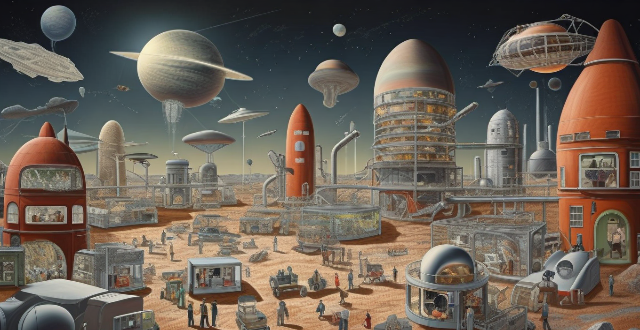
How does space exploration benefit humanity ?
The benefits of space exploration for humanity include technological advancements, economic growth through job creation and commercial opportunities, global collaboration fostering peace, scientific discoveries about our universe, inspiration and education for future generations, preserving Earth by monitoring environmental changes, and national security measures. These benefits touch every aspect of human life, making space exploration a significant investment in our collective future.

How has rocket technology evolved since the early days of space exploration ?
The evolution of rocket technology has been a journey from liquid-fueled rockets to reusable launch vehicles, marked by significant milestones. The development of ICBMs during the Cold War laid the groundwork for space exploration technologies. Multistage rockets increased payload capacity and efficiency. Reusable rockets reduced costs and paved the way for sustainable space travel. Future prospects include advanced propulsion systems like ion thrusters and nuclear propulsion, promising faster transit times and more efficient energy use.

What are the current advancements in space exploration ?
The text discusses current advancements in space exploration, including commercial space travel, Mars and lunar exploration, deep space probes, and telescopes and observatories. These advancements showcase humanity's relentless pursuit of knowledge and understanding of the universe around us.

What are some innovative technologies being used for waste reduction ?
Innovative technologies are being developed to address the critical issue of waste reduction, including anaerobic digestion, recycling and upcycling, composting, incineration with energy recovery, zero waste practices, IoT and smart waste management, circular economy models, and biodegradable and compostable materials. These solutions aim to minimize environmental impact and promote resource conservation.
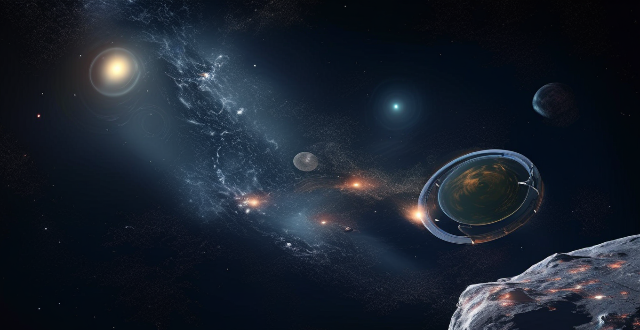
How will commercial space tourism change the way we view Earth and space ?
The advent of commercial space tourism is set to revolutionize our understanding of both Earth and space by making space travel more accessible. It allows us to view our planet from a different perspective, fostering a greater sense of global awareness and interconnectedness, as well as an appreciation for the fragility and beauty of our planet. Additionally, it provides the opportunity for people to experience space firsthand, leading to a deeper understanding of the challenges and opportunities presented by space exploration, renewed interest in science and technology, and increased demand for education in STEM fields. Overall, commercial space tourism has the potential to change the way we view Earth and space by providing unique perspectives and experiences that can help us better appreciate our planet and expand our understanding of the universe beyond.
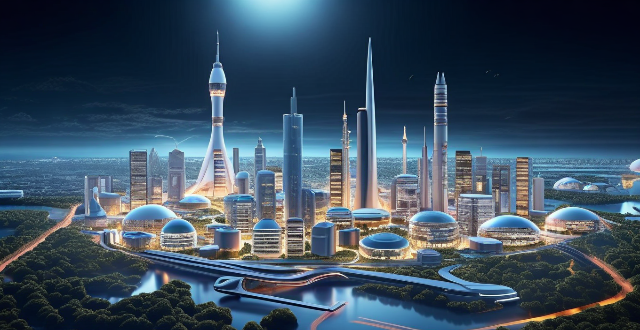
How does space exploration inspire future generations ?
Space exploration has been a source of inspiration for future generations in various ways, including igniting curiosity and wonder, advancing scientific knowledge, promoting international collaboration, encouraging careers in STEM, inspiring creativity and art, and nurturing resilience and perseverance. As we look toward the future, space exploration will continue to capture the imagination of young people around the world and spur them on to become the next generation of explorers, scientists, and engineers.

What safety measures are being taken to ensure the success of commercial space missions ?
The topic of this text is safety measures for commercial space missions, which are crucial to ensure the success and well-being of crew members and mission objectives. The key points include redundancy and robustness in system design, thorough testing before launch, comprehensive crew training, emergency procedures, critical onboard systems like life support and communication, and regulatory oversight by agencies like the FAA. In-depth analysis reveals that these measures involve engineering backups for critical systems, simulating space conditions on Earth, preparing astronauts for emergencies, defining clear responses to crises, managing life support and radiation protection, maintaining constant contact with mission control, and adhering to safety standards set by regulatory bodies. As the commercial space industry advances, these safety measures will continue to adapt to new challenges and technologies.

How does waste reduction contribute to a circular economy ?
The transition to a circular economy is significantly influenced by waste reduction, which encompasses various strategies like reusing products, recycling materials, and promoting resource efficiency. These practices help in conserving natural resources, reducing pollution, creating economic opportunities, and fostering sustainable consumer behavior. Governments and businesses play a crucial role in driving waste reduction through policy initiatives, technological innovations, and sustainable supply chain management. Community engagement and public awareness further support this shift towards a more sustainable economic model.
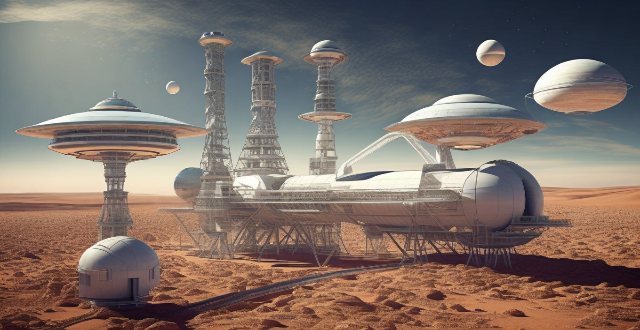
What are the ethical considerations of space exploration and colonization ?
The article discusses the ethical considerations of space exploration and colonization, emphasizing the importance of balancing potential benefits with risks, considering environmental impact, addressing interplanetary diplomacy, and developing a comprehensive legal and regulatory framework. It highlights the need for a strong ethical framework to ensure responsible and sustainable pursuit of space endeavors.

What are some innovative ways to recycle electronic waste ?
Innovative Ways to Recycle Electronic Waste Electronic waste, or e-waste, is a significant environmental concern that can be addressed through various innovative recycling methods. These include repurposing old devices, upcycling components, recycling plastics, energy recovery, designing for disassembly, regulation and education, and research and development. By adopting these strategies, we can reduce the amount of e-waste in landfills and lessen its environmental impact.

Can circular economy policies help reduce waste and pollution ?
Circular economy policies can significantly reduce waste and pollution by promoting reuse, recycling, and cleaner production methods. These policies incentivize businesses to design products that are easier to maintain and recycle, support sustainable business models like leasing and Product as a Service (PaaS), and encourage consumers to make environmentally friendly choices. Through such measures, the need for new raw materials decreases, energy consumption is reduced, and waste is diverted from landfills, all of which contribute to lower emissions and a cleaner environment.
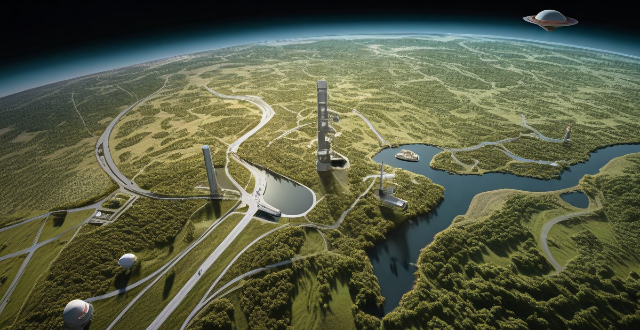
What are the current trends in commercial space exploration ?
Commercial space exploration is a rapidly evolving field, drivenCommercial space exploration is a rapidly evolving field, driven, economic incentives, and small satellite constellations for internet and Earth observation, space tourism and commercial space stations, Moon and Mars exploration, in-space manufacturing and resource utilization, and international cooperation and legal frameworks. These trends demonstrate that commercial space exploration is not only expanding our knowledge of the universe but also creating new industries and opportunities for economic growth.
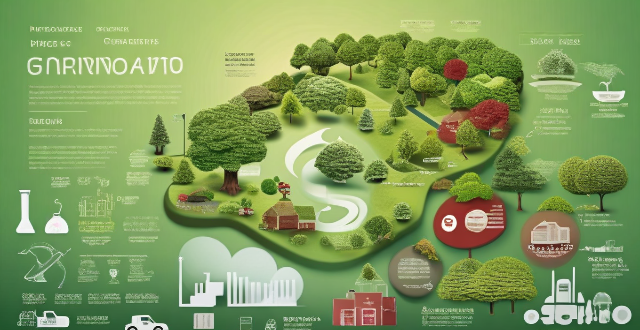
What is the impact of waste reduction on global climate change ?
This text discusses the importance of waste reduction in mitigating global climate change, highlighting how it can reduce greenhouse gas emissions, conserve natural resources, and protect ecosystems and biodiversity. It suggests ways to reduce waste such as reducing consumption, reusing items, recycling materials, composting organic waste, and supporting sustainable practices.

How has private investment impacted the development of space technology ?
Private investment has significantly impacted space technology development by increasing research and development funding, reducing costs, improving efficiency, and driving innovation. Private companies like SpaceX and Blue Origin have made advancements in reusable rockets, satellite communications, and lunar exploration. These investments have also enabled new business models and increased accessibility to space for smaller organizations.

What are some creative ways to quickly declutter and organize a small space ?
To quickly declutter and organize a small space, start by identifying problem areas and setting clear goals. Sort and categorize belongings into "keep," "donate," "sell," or "trash" piles. Maximize storage through vertical space, multifunctional furniture, and transparent containers. Get creative with storage solutions by repurposing household items and DIY projects. Finally, maintain order with regular cleaning and the "one in, one out" rule to prevent clutter buildup.
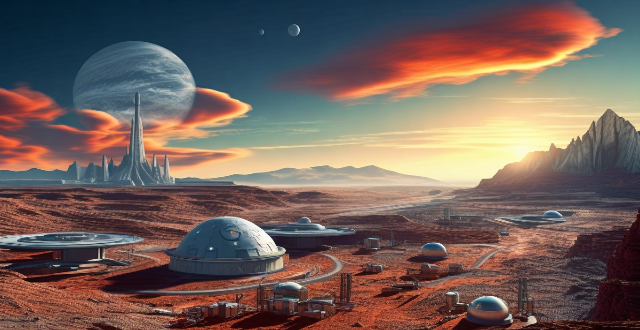
How does space exploration impact global cooperation and diplomacy ?
Space exploration has been a significant driver of global cooperation and diplomacy since the dawn of the space age. The pursuit of understanding our universe and the quest to explore beyond Earth's boundaries have fostered international collaboration, technological advancements, and diplomatic engagements that transcend traditional geopolitical tensions. In this discussion, we will delve into the various ways space exploration influences global cooperation and diplomacy.
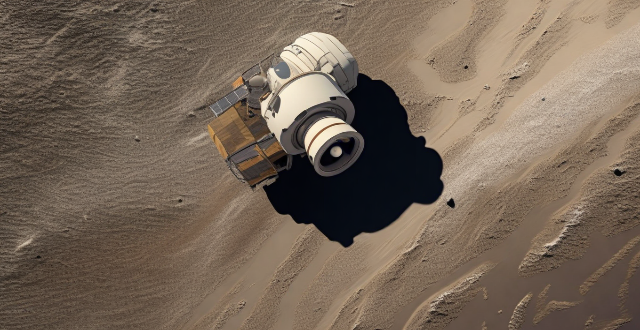
How much does it cost to travel to space ?
The cost of traveling to space varies depending on the type of mission, duration of stay, and provider. Suborbital flights are the most affordable option, while lunar and Mars missions are significantly more expensive. Factors such as training, technology, and risk contribute to the high costs. As technology advances and more companies enter the industry, the cost may decrease, but space travel is unlikely to become affordable for the average person in the near future.
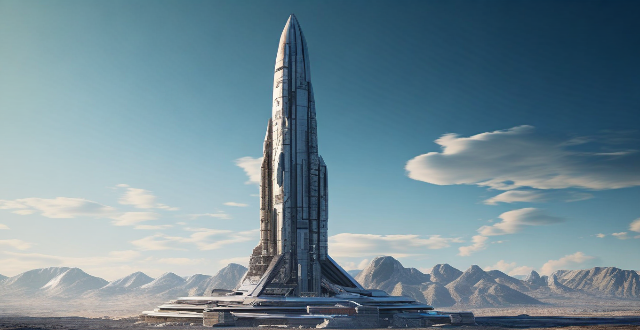
How do reusable rockets work and what benefits do they provide ?
Reusable rockets are designed to launch into space, return to Earth for refurbishment, and then be reused. Key steps include designing with heat-resistant materials, launching in multistage configurations, surviving re-entry, controlled descent and landing, followed by inspection, maintenance, and refueling for future missions. Benefits encompass cost reduction through economies of scale, environmental advantages such as reduced waste and carbon emissions, increased access to space, technological advancements, and enhanced national security and independence.

What role does waste reduction play in sustainable development ?
The article discusses the importance of waste reduction in sustainable development. It highlights the environmental, economic, and social benefits of waste reduction, including conservation of natural resources, protection of ecosystems, climate change mitigation, cost savings, job creation, innovation and efficiency, public health, education and awareness, and community engagement. The article emphasizes that waste reduction is an essential component of sustainable development and encourages individuals, businesses, and governments to take action to reduce waste.
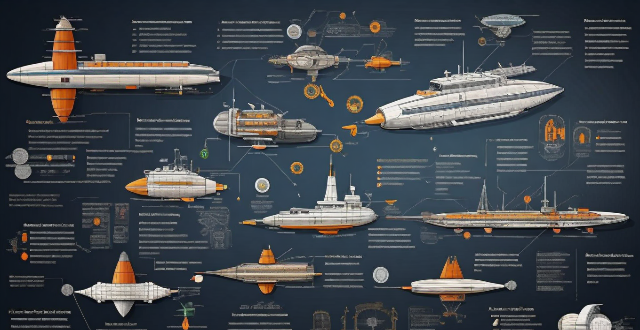
What are the current advancements in space travel technology ?
Over the years, scientists and engineers have made significant advancements in various aspects of space travel. Current advancements include propulsion systems like ion thrusters, nuclear propulsion, and solar sailing; life support systems that recycle water and air and closed-loop life support systems; and reusable spacecraft such as the Space Shuttle program, SpaceX Dragon and Falcon 9, and Blue Origin New Shepard. These advancements show great promise for the future of human exploration beyond our planet.